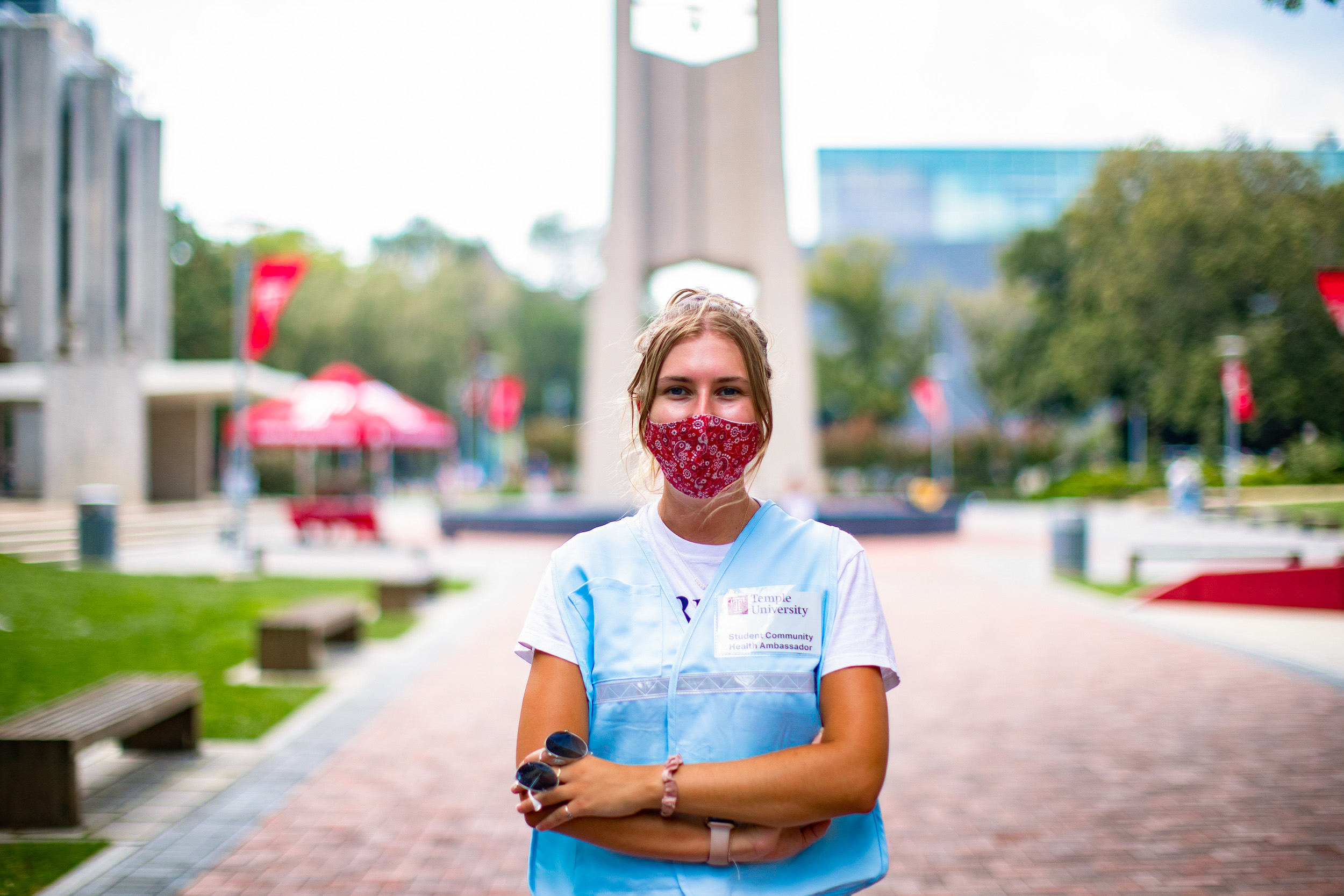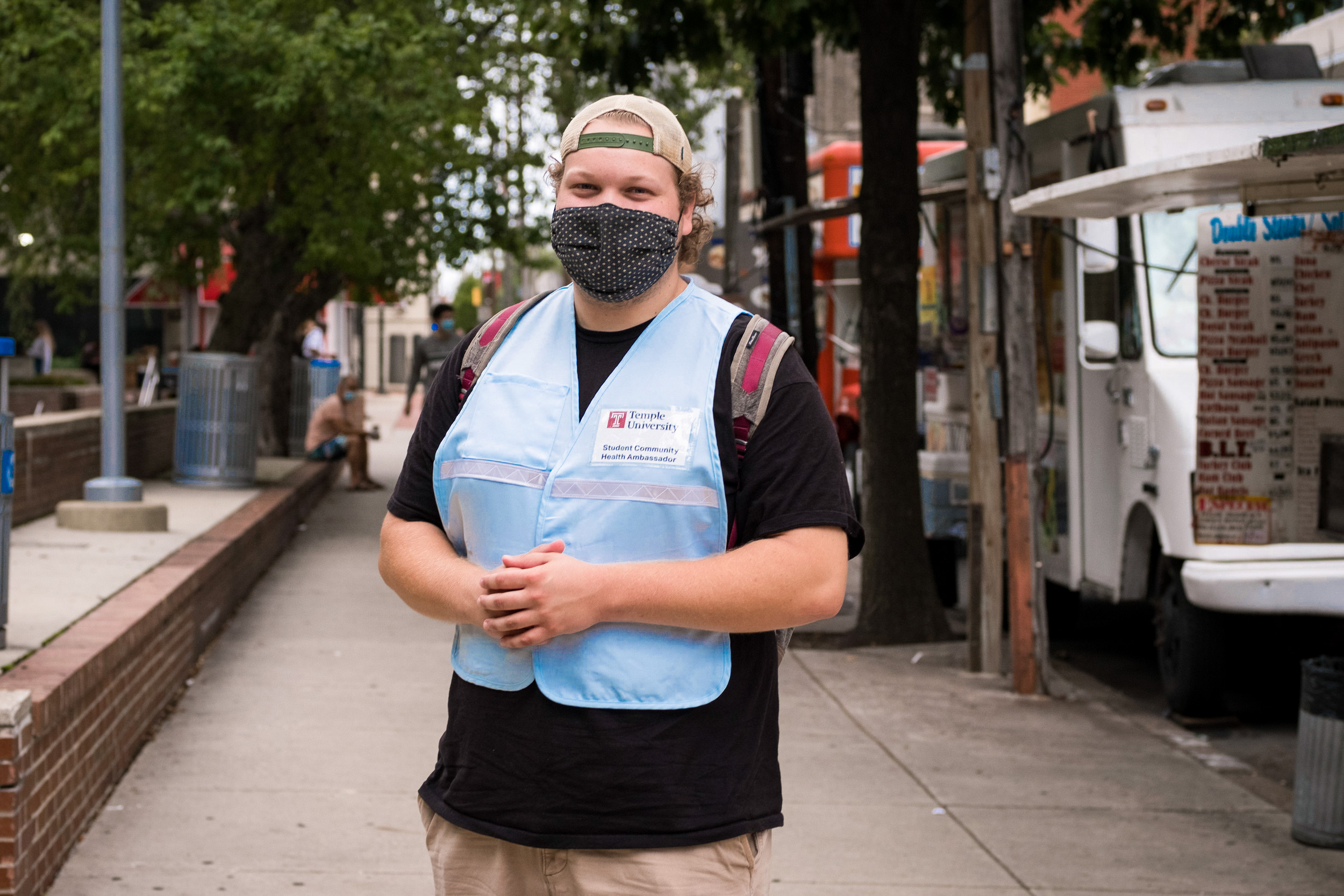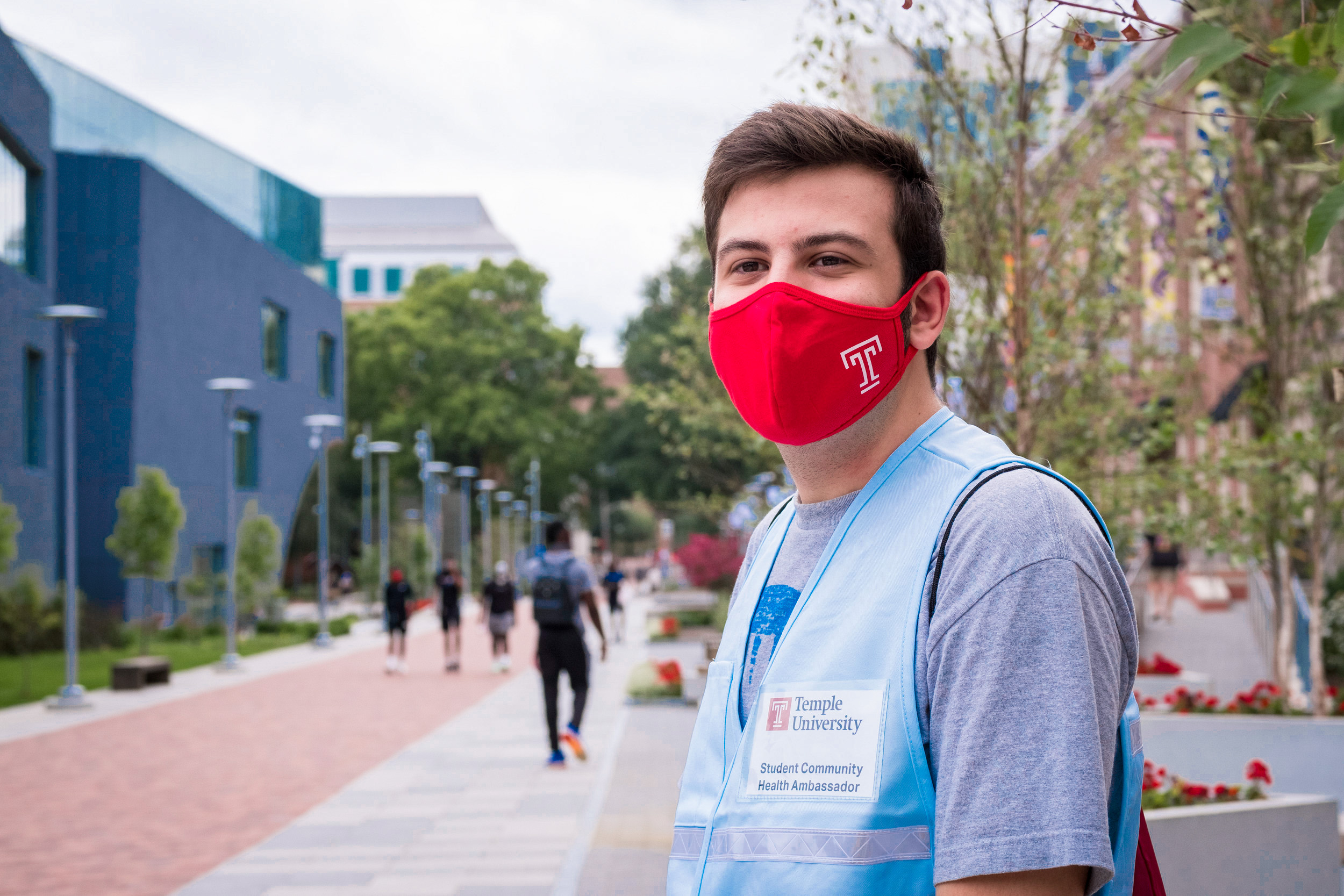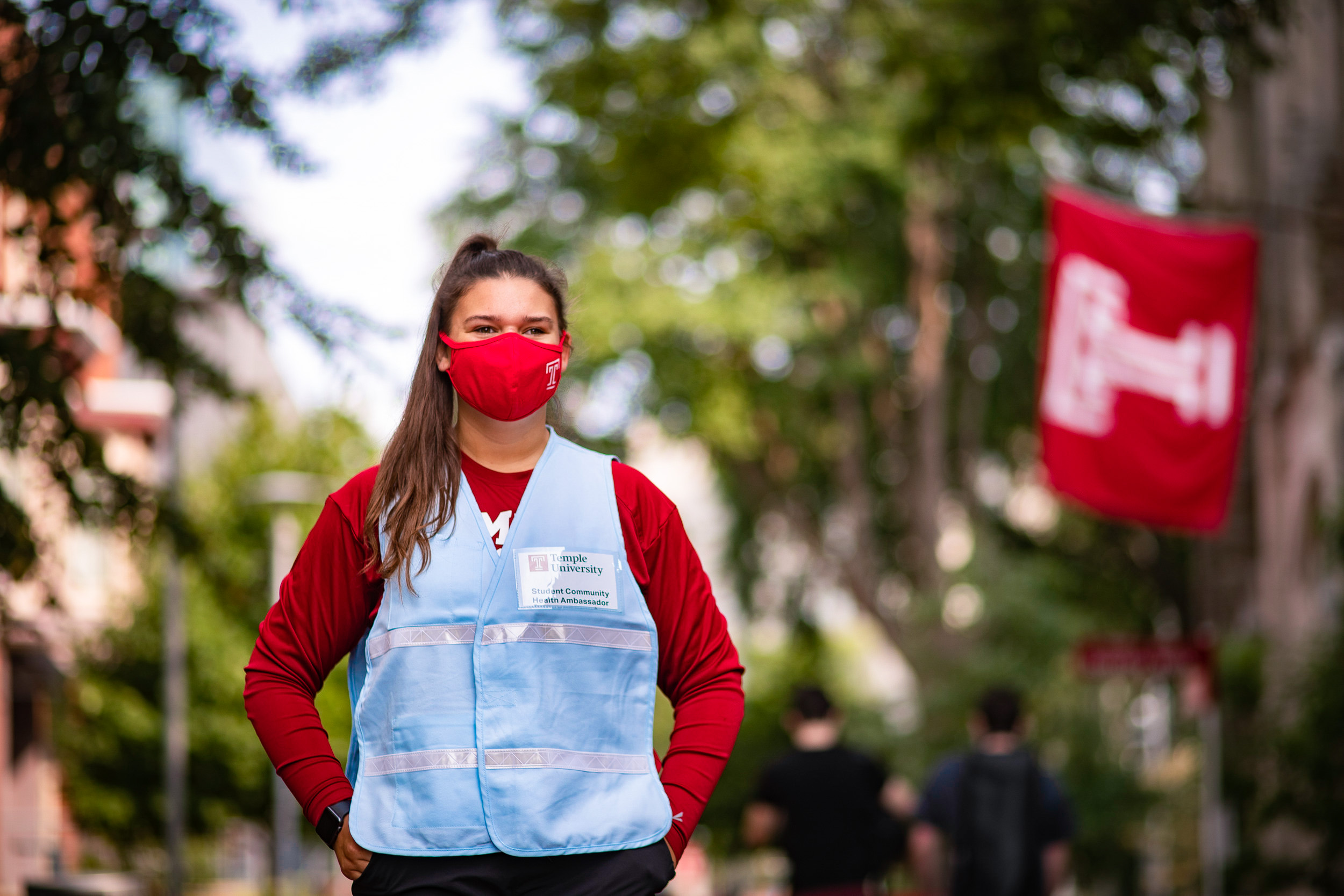Temple introduces the Student Ambassador program to uphold the four pillars
Written by Emma Ford
At the start of the 2020 fall semester, Temple launched its Student Community Health Ambassador program as part of the university’s effort to combat the spread of COVID-19. The program employs Temple students whose job is to promote safe habits throughout campus, in line with the guidelines of the Centers for Disease Control and Prevention.
The backbone of this program and of Temple’s overall guidelines for COVID-19 is the university’s four public health pillars: physical distancing, hand-washing, face masks, and health monitoring.
“As student health ambassadors, we ensure that everyone on and around Temple’s campus is complying with the four public health pillars,” said Megan Lopez, a junior nursing major and ambassador. “These pillars are all crucial to the health of our community.”

The ambassadors monitor student compliance on campus in regard to COVID-19, although they do not enforce the four pillars. Additionally, they reward students that are following the four pillars with tickets redeemable for prizes and also provide health-related resources, such as where to pick up face masks.
Many of the ambassadors held on-campus jobs previously and were hired after their positions were cut short due to COVID-19, but Lopez felt compelled by a larger goal.
“I became a student health ambassador by reaching out to the position coordinators in order to express my interest,” stated Lopez. “I explained that I was a junior nursing student at Temple, which had sparked my interest in public health. I felt a strong urge to get involved in maintaining the health and safety of our campus this semester.”

Because the ambassadors cannot force any students to observe the four pillars, an important part of their training was minimizing negative reactions from students who do not wish to follow Temple’s guidelines.
“We went through a day of training prior to the school year. This training included de-escalation techniques in the event people don’t support our cause,” said Patrick Beatty, a junior marketing major and fellow ambassador.
However, most students have been extremely cooperative with the regulations Temple has suggested. Lopez attests this to the fact that all of the ambassadors are students themselves.

“It is much more pleasant to see another student’s face when being reminded to pull up your face mask or follow the health pillars than to be reminded by those in law enforcement,” said Lopez.
Many students are echoing this statement, including Emma Keats, a junior public relations major. She believes that the ambassador program has helped keep mask-wearing on campus consistent.
“If we didn’t have student health ambassadors, I think that students wouldn’t be so inclined to wear masks. The constant reminders as you’re walking around definitely form a habit,” said Keats. However, she maintains that the university should never have opened the campus up in the first place.

“I think Temple is handling COVID-19 as best they can with the circumstances we’re in,” stated Keats. “I don’t know if we should have had students come back when the inevitable was going online, but I understand the optimism that came with that decision.”
Although the Student Community Health Ambassador program has been successful, it may change in the coming months as Temple decides how classes and campus will open back up.
“As far as my knowledge goes, Temple is not planning on implementing any other programs similar to the student health ambassadors,” said Beatty. “This could change when classes return to campus. The future of the ambassadors is still uncertain.”

